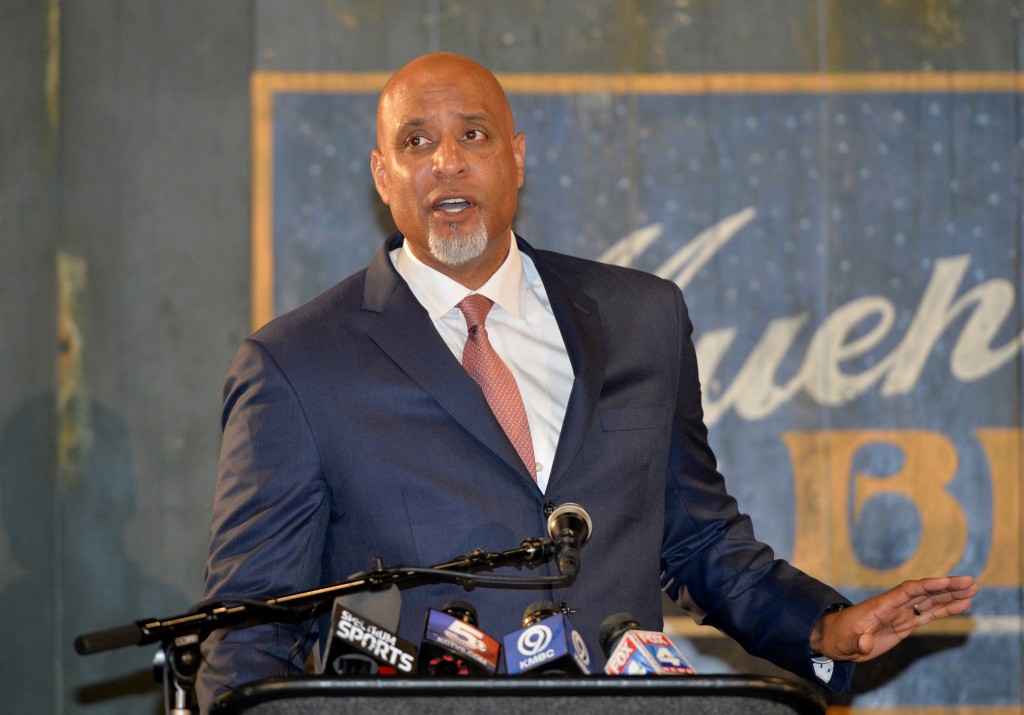
After MLB commissioner Rob Manfred announced the cancelation of the first two series of the regular season, a few key members of the Players Association conducted a press conference of their own. Union executive director Tony Clark, lead negotiator Bruce Meyer and two members of the player executive subcommittee — Max Scherzer and Andrew Miller — spoke with the media (including Chelsea Janes of the Washington Post, Kyle Glaser of Baseball America and Chandler Rome of the Houston Chronicle).
Broadly speaking, union leadership reiterated their desire to continue negotiations after today’s league-imposed deadline passed without an agreement. Clark stated that the union was willing to reengage with the league as soon as tomorrow and pointed out that the union never aligned with the league setting this afternoon as an inflection point in talks. (At his press conference, Manfred suggested the parties couldn’t resume discussions until Thursday). However, union leaders also doubled down on their solidarity and willingness to wait out the lockout in search of a deal they find palatable.
Clark alluded to the progress the sides had seemingly made in discussions yesterday as a reason to keep talks open, but he and Meyer each stressed that the union believes there are significant gaps to be closed on key issues. That’s particularly true on the bonus pool for pre-arbitration players — where there’s a $55MM gap in 2022 between the parties’ latest offers — and the base threshold for the competitive balance tax, which has an $18MM discrepancy. There’s also a $25K difference in the sides’ offers on the 2022 league minimum salary. All those gaps would enlarge over the course of the CBA, as the union is seeking more rapid expansion than the league has offered on each. (The gap on the CBT, for instance, would reach $33MM by 2026).
The league also introduced possible on-field rules changes to the mix late during negotiations. The commissioner stated the league had been pursuing a pitch clock and a ban on defensive shifting, and Bob Nightengale of USA Today reports (on Twitter) they’d also sought to make the bases larger, all of which would’ve taken effect in 2023. Clark expressed general openness to discussions on rules changes but added he was perplexed with MLB raising those issues so late in the process.
Bridging those gaps may prove challenging enough, but there’s also the added tension that comes with the league’s cancelation of games. Manfred flatly stated that it would be MLB’s position that players shouldn’t be paid for any contests lost, thereby raising the possibility of prorated salaries. Meyer disagreed with the league’s outlook, stating that the union will pursue “compensation” for those missed games if they’re not made up at a later date. MLB has maintained those contests are officially canceled, not postponed, but the union has expressed their belief those games could be rescheduled (with full player pay, of course).
How long the lockout will continue is anyone’s guess, but it’s clear that today represented a setback in hopes of finding an eventual endpoint. Clark frankly called it a “sad day for baseball,” and it seems possible that heightened animosity in the wake of the league’s actions could threaten whatever progress had been made yesterday. For instance, the union has previously suggested they’d refuse to agree to expansion of the playoff field in 2022 if regular season games were lost and player salaries prorated. That may perhaps be a fatal blow to whatever frameworks of a 12-team postseason were being discussed yesterday, to give a speculative example. What comes next is to be seen, but the near-term future of the sport is shrouded in uncertainty, having officially reached a point that Manfred had previously said would be a “disastrous outcome.”
Credit : Source link






